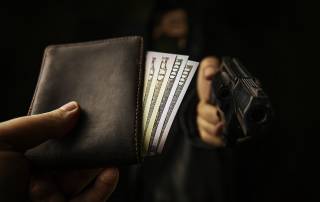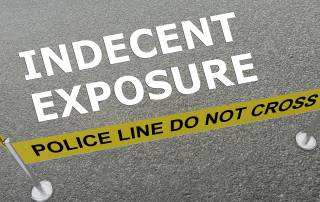If you are one of the people involved in a crash in New York State, the law is particular on what is expected of you. Leaving without sharing your vehicle, insurance, and personal information without justifiable reasons is unlawful. The consequences are stated in the Vehicle and Traffic Law (VTL) Section 600 and can be extremely harsh.
Most people involved in the crash don’t know how to respond when they are charged with a hit and run offense in Long Island. Especially when you know you are not liable for the crush, you might not know how to plead. But no matter the circumstances, a seasoned Long Island criminal justice attorney can help you understand the implications of the various pleas.
Do I Get Additional DMV Points if I Plead Guilty for Hit and Run?
Apart from the fines you will pay, pleading guilty to leaving the scene of an accident can negatively impact your driver’s license. Leaving an accident skin where some property was damaged or a domestic animal was injured can earn you three (3) points.
You might get more points depending on what you did before the crash. For instance, if you were speeding, you could get 3, 4, 6, 8, or 11 points depending on the speed limit exceeded. Reckless driving comes with 5 points, 4 points for following too closely or inadequate breaks, and 2 points for other moving violations.
What Happens to My Insurance Premiums if I Take a Guilty Plea?
Admission of guilt could automatically give you additional DMV points on your driver’s license. This could portray you as a reckless driver, and insurance companies might increase your premiums to shield themselves from possible losses in the future.
Remember, the increased insurance premium rates can remain with you for up to seven (7) years. The cumulative cost of insuring your vehicle following the guilty plea might go up by up to $550 a year. You might have paid up to $3,850 more in the seven years. An experienced Long Island hit and run defense attorney understands these consequences well and will strive to protect you from them.
Will I Lose My License if I Plead Guilty to a Hit and Run?
Taking a guilty plea for a hit and run involving property damage might not lead to license revocation. But if some people were injured or died from the crash, a six-month license revocation might be one of the consequences. Commercial drivers might endure a lengthier revocation. And unlike a suspension where the license is taken away and returned after some time, a revocation is more severe.
Revocation terminates and voids your driver’s license in New York State. After the six-month waiting period, you can apply for a new license and pay a re-application fee. They could deny your application if you don’t meet all the DMV requirements. So, you might want to avoid pleading guilty for hit and run.
Will I Go to Jail if I Plead Guilty for Hit and Run on Long Island?
Violation of New York code VTL 600(1) might be less serious than situations where injuries or death resulted. However, you can be jailed for up to 15 days if you plead guilty to leaving an accident scene involving property damage.
A guilty plea can attract up to a year in jail if there are injuries. You might be imprisoned for up to 7 years if the injuries sustained in the hit and run incident are serious or if fatalities occur. Losing your freedom for an accident you probably didn’t cause is devastating enough. Let a Long Island hit and run defense attorney fight for you and help you avoid a conviction.
Are There Financial Implications to How I Plead?
Apart from the higher insurance premiums that come with most traffic-related offenses, there are several other financial implications of pleading guilty to hit and run charges in New York State. If no one was injured in the crash you fled from, you could part with fines of up to $250. In accidents with injuries, you might pay fines of between $250 and $5,000, depending on the severity of the injuries.
Apart from the above fines, there are other surcharges you could pay if you take a guilty plea. Mandatory surcharges for no or minor injuries could be between $88 and $93. You might also spend money attending driving lessons before your driving privileges are restored.
How Can an Attorney Help When I Want to Take a Plea?
Most people think a guilty plea is only taken in court before a judge. However, a plea can be taken through the actions you take or fail to take after leaving the accident scene in New York State. For instance, paying for the ticket to avoid too many altercations and court appearances can be interpreted as an admission of guilt.
So, before taking any action, it is best to seek the valuable advice of an experienced New York hit and run defense attorney. As soon as you find yourself in a safe place, you should call a legal expert for guidance on the next steps. And if you take the right plea, it will be easier for your lawyer in Long Island to:
- Dismiss the charges completely
- Avoid court costs, fines, and jail term
- Protect your driver’s license
- Eliminate or reduce points on your driver’s license
Experienced Legal Guidance from Aggressively New York Criminal Defense Attorneys
A plea might seem insignificant to criminal and traffic charges, but it is not. It can mend or ruin the next several years of your life in New York State. Every person accused of leaving the scene of an accident needs proper legal guidance.
Our lawyers have been representing clients accused of various crimes in Long Island, NY. Speak to us today, and we will aggressively strive to give your case the best possible outcome.












































